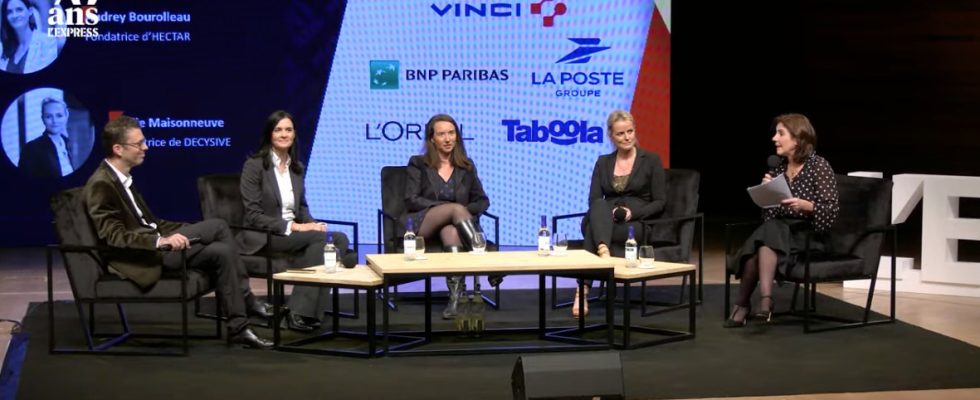What will we talk about at mealtime in 2093? “No environment, because the problem will have been resolved in one way or another. It will no longer be the question of the day,” predicts economist Nicolas Bouzou, invited to debate the future at the 70th anniversary conference of L’Express, this Wednesday October 18. The hypothesis may seem strangely optimistic, but it is actually quite pragmatic when we look ahead over the long term. Between 1953 and 2023, the world has changed significantly. No one would have imagined, for example, that every citizen today would have tools allowing them to instantly broadcast what they want to the whole world.
In 2093, the world will undoubtedly be very different. And according to the experts brought together by L’Express at the Maison de la Radio et de la Musique, rather exciting despite the challenges that our future brings. Will we only eat bars of insect powder in 70 years or will we still have the pleasure of tasting local products? Our way of eating can evolve significantly without denying ourselves, reassures Audrey Bourrolleau, founder of Hectar, a campus creating solutions for the agricultural transition.
According to her, different types of food will coexist in the future. The one we know will not disappear. But at the same time other modes of production will develop which will not be “based on living things”. Consumers will, for example, have the choice between cheeses made from cow’s milk and others produced more industrially in bioreactors.
Cécile Maisonneuve, founder of the Decysive firm and columnist at L’Express, imagines a future where carbon neutrality will be achieved, for example thanks to the creation of a “network of researchers” and “decisive breakthroughs in five areas” : advanced nuclear, solar, energy storage, carbon-free hydrogen and carbon capture.”
“We will always have children”
“In 2093, the big social networks will have disappeared, I think there will be a big comeback of books,” Nicolas Bouzou also wants to believe. According to him, different forms of digital socialization will undoubtedly appear. But the serious challenges posed by large platforms to democracies will have been “digested in 2093”, and classic knowledge transmission formats will experience a real comeback.
Health will also be transformed, assures Isabella de Magny, co-founder of the forecasting firm Inspiring Futures. “Citizens will have access to an immersive public health service […] and a pre-diagnosis will be made. In 30 minutes, they will have ultra-fast support, with a personalized plan,” promises the expert.
If we move towards an increasingly preventive health model, however, new frameworks will have to be defined. “If someone is predisposed to certain illnesses, has medical recommendations but does not follow them, what will we do?, asks Isabella de Magny. Where is our freedom, how far does it go, and will Are we required to do certain follow-ups?”
If society will be transformed, constants will of course remain. “We will always have children. Fewer than today, but between one and two children,” predicts Nicolas Bouzou. Work will not disappear either, assures the economist and essayist. “Even in scenarios where strong AI emerges (..) humans need to work, because work is participation in the construction of the world.” A very different future from the universes to the Mad Max that so many post-apocalyptic films like to describe to us.
